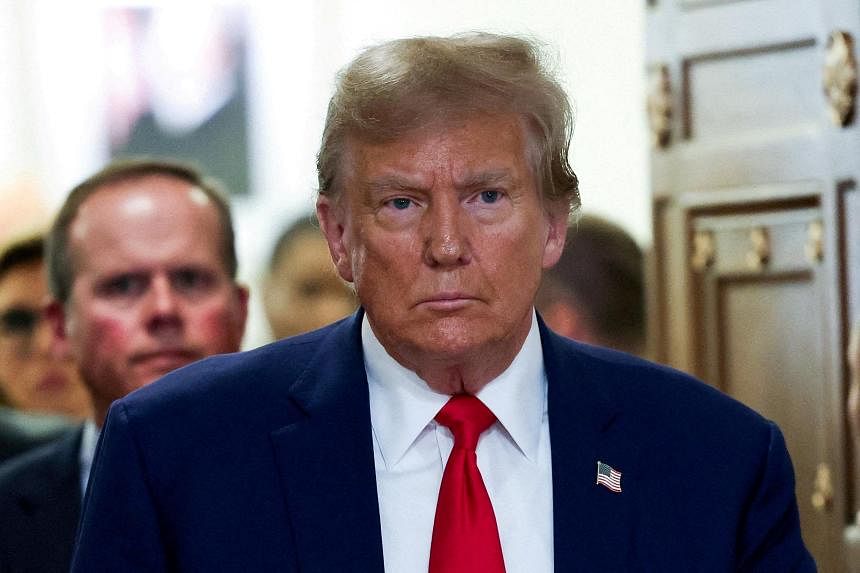NEW YORK – A New York judge on March 7 effectively barred former president Donald Trump from exposing the identities of potential jurors at his first criminal trial later this month, emphasising a need to protect those who might decide the highly sensitive case.
Judge Juan Merchan, who is presiding over the trial, granted a request from the Manhattan district attorney’s office to withhold the names of jurors from the public. The judge also ordered that their addresses be kept from everyone except the lawyers in the case.
Trump’s legal team, which is defending the former president from accusations of covering up a potential sex scandal during the 2016 election, agreed that it was appropriate to keep the jury’s information private.
Trump lawyer Todd Blanche declined to comment on Thursday.
New York state does not allow juries to operate in full anonymity, meaning that defendants are allowed to know jurors’ names. Judge Merchan, however, moved to shield the names of the jurors in Trump’s trial from the broader public, underscoring the potential harm in a case involving a polarising figure like the former president, who can whip his supporters into a frenzy.
The restrictions and concerns about juror safety reflect the volatile environment swirling around Trump’s legal entanglements, including four criminal cases and several civil trials. After Trump recently lost a civil fraud case in New York, which was brought by the state’s attorney-general, envelopes of white powder were sent to both the attorney general’s office and the judge who had overseen the case. The judge was also the victim of a hoax bomb threat on the day of closing arguments.
Jury selection in Trump’s criminal trial is set for March 25, making it the first prosecution of a former United States president. He is charged with a raft of felonies stemming from a hush-money payment to a porn star during the 2016 presidential campaign – a pay-off that Trump is accused of hiding from voters.
For now, it is unclear what punishment Trump might face if he violates the order preventing him from revealing the identity of jurors. District attorney Alvin Bragg, had sought to revoke Trump’s access to juror names if he threatens their safety, but the judge put off ruling on that request.
Instead, Judge Merchan suggested that he would address any potential punishments for Trump when he rules on another request from Mr Bragg – that the former president be subject to a gag order.
The order, if the judge approves it, would bar Trump from “making or directing others to make” statements about witnesses concerning their roles in the case. Mr Bragg also asked that Trump be barred from commenting on prosecutors on the case, other than Mr Bragg himself, as well as court staff members.
It would be just the latest gag order imposed on the former president. In Trump’s criminal case in Washington, which involves accusations that he plotted to overturn the 2020 election, a judge imposed such an order. And in the civil fraud trial, Judge Arthur Engoron ordered Trump not to comment on court staff members.
Trump has railed against the judges, and his campaign has called Mr Bragg’s request for a gag order “an unconstitutional infringement on President Trump’s First Amendment rights.”
Yet judges typically try hard to protect witnesses and, especially, jurors.
After a federal jury delivered a verdict against Trump in a recent defamation trial, Judge Lewis Kaplan ordered the jury not to disclose the identities of the other jurors, and strongly encouraged them to forever remain anonymous. In the federal system, jurors are allowed to remain anonymous, even from parties in the case.
“My advice to you is that you never disclose that you were on this jury,” Judge Kaplan said. “And I won’t say anything more about it.” NYTIMES

